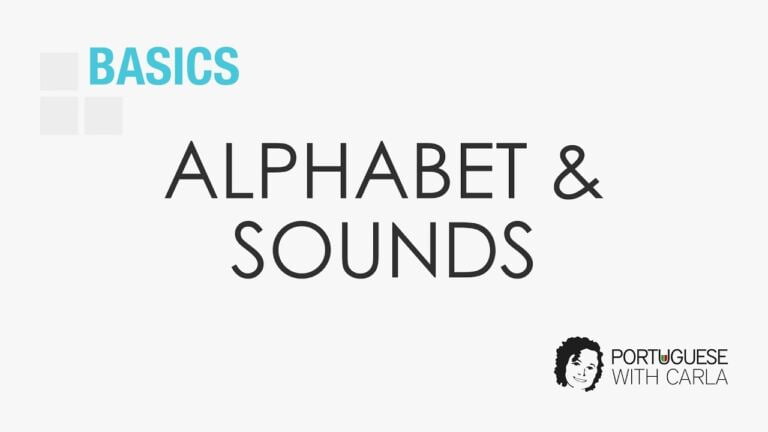The Essentials of Business in Portuguese From Portugal
Most people consider Portugal a tourist destination with stunning beaches and great food. However, the country offers more than beautiful vacation spots. Many people travel to the Iberian country for business purposes.
Navigating the business world in Portuguese can be an exciting challenge. But in such a specific environment, where every word and gesture counts, going deeper is essential. After all, regardless of your work field, communication likely goes beyond simple translations. You will also need to improve your cultural understanding.
Mastering Portuguese business terms can open incredible professional opportunities across Portuguese-speaking countries. Doing so will help you communicate effectively. You will feel confident whether you are introducing yourself or trying to advance a deal.
Below, learn some practical phrases and essential vocabulary. More importantly, gain cultural insights that can transform your business interactions. Boosting your professional Portuguese skills is your ticket to better business interactions. And you are about to discover how.
Understanding the Basics of Portuguese Business Language
Mastering Portuguese business language begins with understanding fundamental communication skills. Start by learning essential greetings like Bom dia
Formal language plays a significant role in professional interactions. So, native speakers appreciate when you communicate with the appropriate formality. Hence, you should use polite verb forms and maintain a professional tone. Remember that your approach to language will reflect your understanding of the local culture.
Then, there are some crucial terms you can learn.
How to Speak Portuguese – 10 Essential Business Words
If you are coming to Portugal para fazer negócios fileurl=”https://portuguesewithcarla.com/wp-content/uploads/audio-uploads/para-fazer-negocios.mp3″%5D(To do business), here are the top 10 business terms you need to know.
- Negócio(Business)
- Empresa(Company)
- Emprego(Job/Employment)
- Reunião(Meeting)
- Contrato(Contract)
- Fornecedor(Supplier)
- Investimento(Investment)
- Mercado(Market)
- Faturação(Billing/Revenue)
- Lucro(Profit)
Remember that pronunciation matters in building credibility and trust. So, practice speaking Portuguese words clearly and with proper intonation. Listen to native speakers and mimic their speech patterns. Even if you are imperfect, they will appreciate your effort to speak accurately.
Business Communication Essentials
In business, as in life, first impressions are paramount. In Portugal, the most common business greeting is a handshake followed by your introduction. For that, you can say: O meu nome é
Portugal is the 6th country where English is best spoken worldwide. Thus, native speakers will not demand that you speak perfect Portuguese. Yet, overall communication, and specifically small talk, remains important in Portuguese business environments. So, using these expressions and other small phrases will profoundly impact your experience.
When conversations become complex, do not hesitate to ask for clarification. You can use simple sentences like Desculpe, não entendi.
Maintain a professional yet friendly demeanor during conversations. Demonstrate cultural awareness by showing genuine interest in your Portuguese colleagues. Listening carefully and speaking with respect will enhance your professional communication skills.
Conducting Business in Portuguese
Conducting business in European Portuguese requires careful preparation and cultural understanding. Building strong relationships is fundamental in Portuguese business environments. And making an effort to speak Portuguese can significantly enhance your professional interactions.
Trust develops through respectful communication and genuine interest in your colleagues. Familiarize yourself with key business terminology to navigate professional discussions confidently. Always use formal language and polite verb conjugations during interactions.
Pay attention to pronunciation and speak with clarity to establish credibility. Demonstrate cultural awareness by showing genuine interest in your Portuguese business partners. Understanding industry-specific vocabulary will help you communicate more effectively in professional settings.
Preparing for a Business Trip
When preparing for a business trip to Portugal, start by mastering travel phrases to navigate daily interactions. Learn to communicate your basic needs confidently. Then, research local customs and social expectations to avoid potential misunderstandings.
Pay attention to business etiquette, including appropriate dress codes and punctuality standards. Portuguese professionals value formal attire and precise timing. So arrive well-prepared and dressed professionally. Depending on company culture, you might have to respect a specific dress code.
Your preparation will help you make a positive impression and build strong professional relationships during your trip. Remember to use a friendly farewell after meetings or social gatherings. Examples like Tenha um bom dia
Cultural Awareness in Portuguese Business
Your Portuguese language skills are about more than mere words and sentences. Understanding cultural nuances is crucial when conducting business in Portuguese-speaking countries. For example, in Brazil, personal relationships and trust are highly valued. So, taking the time to get to establish a rapport can significantly impact your business success.
Conversely, in Portugal, punctuality is paramount. Arriving late to meetings or appointments can be perceived as disrespectful. The Portuguese maintain a formal tone in business settings. They often use the person’s name and conjugate the verb in the third person singular. This formality extends to their communication style, which tends to be reserved.
Being aware of these cultural differences will help you navigate interactions more effectively. Demonstrating respect for local customs and communication styles will enhance your professional relationships. Moreover, it will pave the way for successful business dealings.
Industry-Specific Vocabulary and Terminology
Mastering industry-specific vocabulary is crucial in Portuguese business environments. Understanding general terminology demonstrates your commitment to clear communication.
10 General Business Terminology Words in Portuguese
- Relatório(Report)
- Orçamento(Budget)
- Estratégia(Strategy)
- Planeamento(Planning)
- Análise(Analysis)
- Objetivo(Objective)
- Cronograma(Schedule/Timeline)
- Proposta(Proposal)
- Parceria(Partnership)
- Desempenho(Performance)
Additionally, you should know specialized terms specific to your area of business. Accurate technical vocabulary shows your expertise and builds credibility during interactions. Consider these words and expressions related to the finance and technological fields.
10 Finance Business Words in Portuguese
- Finanças(Finance)
- Receitas(Revenue)
- Despesas(Expenses)
- Património(Wealth/Assets)
- Impostos(Taxes)
- Ações(Stocks)
- Dívida(Debt)
- Capital(Capital)
- Taxa de juro(Interest rate)
- Ativos(Assets)
10 Tech Business Words in Portuguese
- Tecnologia(Technology)
- Sistema(System)
- Equipamento(Equipment)
- Rede(Network)
- Dados(Data)
- Programação(Programming)
- Cibersegurança(Cybersecurity)
- Algoritmo(Algorithm)
- Servidores(Servers)
- Plataforma(Platform)
By learning specialized terms, you show your respect for the field and your colleagues or potential partners. Moreover, your precision will improve how others perceive you in professional settings. Therefore, choosing the right words is one of the most helpful strategies you can follow.
Legal and Regulatory Considerations
In Portugal, the legal system is based on civil law. Businesses must adhere to various regulations, including labor, tax, and environmental laws. Additionally, the country has strict rules on data protection, intellectual property, and competition.
You must comply with these regulations to avoid penalties and maintain good standing in the business community. For that, you must stay well informed. This way, you can build a solid foundation for success in Portuguese-speaking markets. However, you might need the assistance of legal professionals familiar with local laws.
Networking and Relationship Building
Networking and relationship building are essential for anyone looking to do business anywhere. Establishing strong connections with business partners, suppliers, and clients ensures successful deals. In Portugal, attending networking events and conferences is a common practice. These gatherings allow you to meet potential business partners and stay updated on industry trends.
You can also join business associations and chambers of commerce. These institutions also facilitate valuable connections and insights. You can participate in trade shows and conferences and expand your business network through them.
You can create a robust support system by focusing on networking and relationship building. This system will contribute to your long-term success in Portuguese-speaking markets.
Overcoming Language Barriers in Business
When doing business in European Portuguese, communication challenges are inevitable. Besides the sentences you learned above, you can use visual aids to bridge language gaps. Besides, use simple language and speak slowly to ensure understanding. Patience becomes your greatest ally when navigating linguistic differences.
Always remain flexible and open-minded during professional interactions. If a misunderstanding occurs, ask clarifying questions and confirm details respectfully. Nonverbal communication, like gestures and facial expressions, can support your speech.
Technology tools like translation apps can also provide quick assistance during complex conversations. For example, you can use Linguee or Reverson Context to translate words and short expressions. Alternatively, you might use ChatGPT and, depending on your device, Apple Translate or Gemini for full sentences. Remember that most professionals appreciate your effort to communicate, even if you make mistakes. So, practice active listening and show genuine interest in others.
Continuing Your Portuguese Language Journey
Learning basic business vocabulary is the first step in your European Portuguese journey. Continuing it requires dedication and applying the right learning approaches. That is why we created The Journey – a European Portuguese interactive course.
The comprehensive curriculum goes beyond traditional language instruction. It focuses on authentic cultural immersion and practical communication skills. Through it, you will explore regional dialects, pronunciation, and conversational contexts.
The interactive lessons provide engaging opportunities to practice listening, speaking, writing, and comprehension. They combine structured learning with dynamic content. Thus, they help you develop genuine fluency and cultural understanding while having fun. Try it now, and tell us what you think!
Learn European Portuguese the Instinctive Way!
For the last decade, we’ve been working on putting together the best possible European Portuguese course. After much research, feedback from our students, and several iterations, we think we’ve got it! 😉
At the base of it all is a sound conviction that languages are better learned instinctively, so the process needs to be engaging, varied, and enjoyable. Throughout, we used scientifically proven techniques to help you master pronunciation, phrase construction, oral understanding, grammar, and all the necessary bits to get you to fluency. And still, the whole thing is presented as an adventure. It’s a course like no other. Click the button below to see for yourself!
Putting It All Together: How to Do Business in Portuguese
Mastering business communication in European Portuguese is one of the most vital steps for success. Before your trip, learn and practice basic phrases and vocabulary in real-world contexts. Immerse yourself in various business communication scenarios, from formal meetings to dynamic negotiations. This way, you will build confidence and convey trust and credibility.
Cultural awareness is just as significant as your linguistic skills. Choose the right words to prevent misunderstandings. Besides, strive to create a personable atmosphere during conversations. Learn to navigate presentations with clarity and respect. Develop strategies for overcoming language barriers through patience and visual aids.
Your cultural sensitivity will set you apart in professional interactions. Remember that effective communication goes beyond words. It is about building genuine relationships and mutual understanding. With this advice, you will enhance your business experience in Portugal in ways that might even surprise you.










